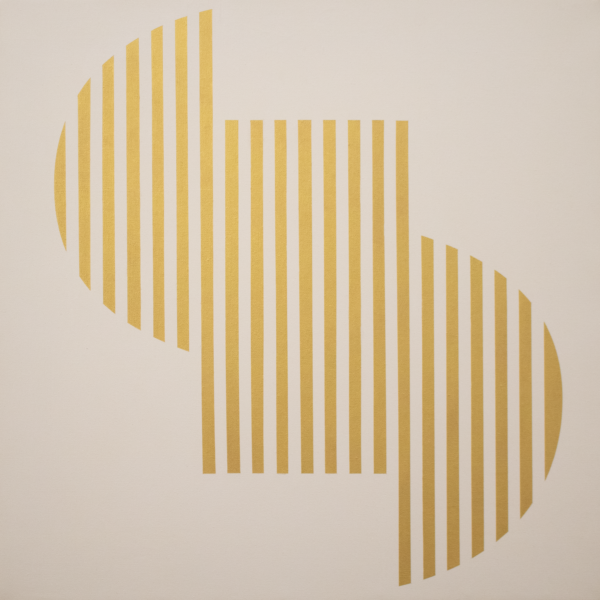José Angel Vincench
Sedition / Sedición
Ironical Gold: José Ángel Vincenchʾs Conceptual Abstraction
By Donald Kuspit
What is one to make of the words that accompany Vincench’s abstractions, considering the fact that their over-all title is “The Burden of Words” Vincench’s abstractions are asymmetric, and the relationship of words to visual art is asymmetric—dare one say ironical? Their asymmetry reflects the asymmetry—absurdity, certainly contrariness--of Vincench’s situation in Cuba: an artist making abstract art implicitly critical of its authoritarianism doesn’t exactly fit into it, however tolerated he may be, even respected as an intriguing anomaly, that is, the proverbial and celebrated exception that proves the rule. If Vincench’s works are an abstract discourse about Cuba—abstraction as disguised discourse in order to protect the ideas implicitly invested in it, in order to evade censorship—then words such as “gusano” (worm) and “escoria” (slag or dregs, exileis exilio) explicitly refer to people and events in it. Vincench writes that “human and historical value” can be “summarized in a word,” suggesting that a particular word is not simply the signifier of a particular culture, but, more generally, has universal psychosocial meaning. Thus Vincench’s use of such words as change, autonomy, peace, pardon, and reconciliation. They are broadly idealistic in import--they allude to “social utopia,” as he writes, in contrast to the social dystopia that is Cuba--in contrast to gusano and escoria, which directly signify the harsh reality that is Cuba.








